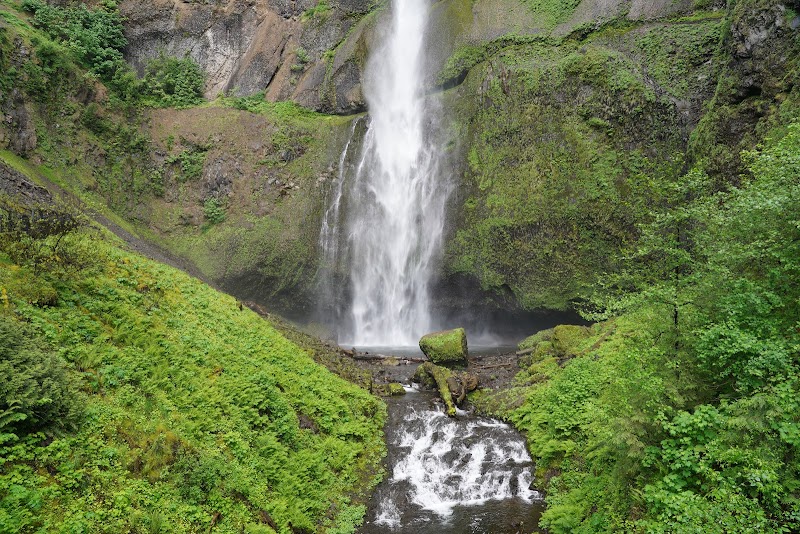
Exploring the Ape Caves: Lava Tubes Beneath Mount St. Helens
Discover the Ape Caves, a spectacular lava tube system formed by ancient flows from Mount St. Helens. This unique adventure offers a cool underground trek with rugged terrain and forested trails, perfect for those seeking an accessible yet thrilling exploration beneath one of Washington’s iconic volcanoes.
Bring Reliable Lighting
Headlamps are mandatory; carry extra batteries or a backup flashlight to ensure safe navigation through pitch-black tunnels.
Wear Sturdy, Waterproof Boots
Uneven basalt and damp cave floors require solid footwear with good grip to prevent slips and injuries.
Dress in Layers
The cave temperature holds steady around 42°F, so bring insulating layers even in summer to stay warm and comfortable.
Start Early to Avoid Crowds
The trails can get busy midday, so hitting the Ape Caves early in the morning provides a quieter, more immersive experience.
Exploring the Ape Caves: Lava Tubes Beneath Mount St. Helens
Under the shadow of Mount St. Helens roars a silent world carved by fire and time—the Ape Caves. These lava tubes invite you to step inside a subterranean passage, stretching nearly two miles beneath the Cascade volcano’s rugged flank. The journey begins at the trailhead, where towering Douglas firs and western hemlocks stand like guardians, before the path dips into the cool, dark heart of the earth.
The hike itself covers roughly 2.5 miles round trip through the lower tunnel, which ranges between 20 to 50 feet wide and up to 20 feet tall in places. Expect uneven basalt floors and narrow squeezes where the cave dares you to move forward. Temperatures hover around 42°F year-round, so layers aren’t just recommended—they’re necessary. Headlamps or reliable flashlights are essential; the cave’s natural darkness is total and unwavering.
Entering the Ape Caves feels like crossing into a different world. The air hums with ancient volcanic energy as the cavern walls drip with mineral formations and the floor crunches with scattered basalt rubble. Mushrooms find life in the dim light at the entrances, and if you listen closely, your footsteps echo like a pulse in the earth’s chest. This is not a casual stroll but an encounter with a landscape fiercely itself—one that demands respect and readiness.
Outside the cave, the terrain is approachable: a gentle elevation gain of about 200 feet leads through a shaded forest path, blending mossy logs and fern-studded clearings. The trailhead itself sits at around 3,400 feet elevation, providing occasional glimpses of Mount St. Helens’ scarred summit through breaks in the trees.
For practical planning, bring sturdy hiking boots with good traction—slippery basalt can challenge your footing inside the tube. A headlamp paired with backup flashlights ensures you won't be left in darkness. Hydration is key, particularly during summer’s warmer months, even though the cave is cool. Start early to avoid crowds and savor the solitude that the upper reaches of the cave offer. Keep in mind that the cave is closed during winter months due to slippery ice formations.
Whether you’re a casual adventurer or a seasoned explorer, Ape Caves presents a unique blend of natural history and physical challenge—an underground adventure that connects you to the volcanic forces shaping this region. It’s a raw, tactile experience reminding you that beneath every mountain lies a story fiercely alive, waiting to be discovered.
Nearby Trips
All Adventures
Boat Charters
Water Activities
Adventures near Castle Rock, Washington
Discover the unique and memorable adventures that make Castle Rock, Washington special.
Frequently Asked Questions
How long is the Ape Caves hike?
The most commonly explored lower tube is about 2 miles round trip, with an easy-to-moderate trail through the forest leading to the cave entrance.
Is the Ape Caves safe for kids?
Children can enjoy the caves, but supervision is essential as parts of the cave require crawling or squeezing through narrow sections and the floor can be slippery.
Can I explore the upper lava tube as well?
Yes, the upper tube is more rugged and technical, requiring more climbing and scrambling skills, so it’s best suited for experienced cave explorers.
Are pets allowed in the caves?
Pets are not permitted inside the caves due to safety concerns and fragile cave ecosystems.
When is the Ape Caves trail closed?
The caves are typically closed from late fall through early spring due to hazardous ice formation inside and unpredictable trail conditions.
What is the best time to visit to avoid crowds?
Early mornings and weekdays are less busy, especially outside peak summer months, providing a quieter experience.
Recommended Gear
Headlamp with Extra Batteries
Bright, reliable lighting is crucial for safe navigation through pitch-dark lava tubes.
Waterproof Hiking Boots
Protects feet from wet, slippery basalt and uneven surfaces inside and outside the cave.
Insulating Layer
Maintains body warmth inside the consistently cool cave environment.
Water Bottle
Hydration is important for the hike before and after exploring the cave, especially in warm weather.
Local Insights
Hidden Gems
- "Look for the vertical skylight inside the upper tube, where sunlight spills dramatically, highlighting ancient lava formations."
Wildlife
- "Black-tailed deer frequently forage near the cave entrances, and inside, you might spot tiny cave-adapted insects and fungi thriving in the dark."
History
"The Ape Caves were formed about 2,000 years ago during an eruption from Mount St. Helens that sent basaltic lava flows carving these tunnels beneath the forest floor. They were formally designated a National Landmark for their geological importance in 1924."
